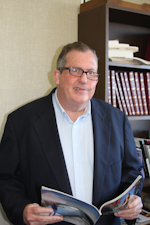Full-time dental hygiene: Ranking U.S. cities for RDHs who want to work full time
What U.S. cities offer the best chance for you to work as a full-time dental hygienist?
In salary surveys, dental hygienists often point to oversaturation of the job market—or employers offering part-time jobs as a means to avoid job benefits—as obstacles to overcome when searching for an ideal dental hygiene employment situation that may include full-time hours.
In the fall months of 2015, RDH eVillage conducted a salary survey. In addition to general salary information, some questions pertained to employment criteria such as the number of hours worked on a weekly basis.
The rankings below indicate the percentage of salary participants who worked full-time as dental hygienists in 2015. Since there are a number of reasons why a dental hygienist would participate in a general salary survey, we include the actual statistics that the percentages are based on. It is up to the readers’ perceptions on whether their city’s ranking makes sense or not.
But we ask that you please review the statistics presented after the rankings. We make an attempt to convey a sense of whether part-time dental hygienists are feeling underemployed in their careers.
Cities with highest percentages of full-time dental hygienists
1. San Antonio 71.43% (15 of 21 dental hygienists work full-time)
2. Austin 70.37% (19 of 27 dental hygienists work full-time)
3. Denver 68.85% (42 of 61 dental hygienists work full-time)
4. Indianapolis 68.18% (15 of 22 dental hygienists work full-time)
5. Houston 68.00% (17 of 25 dental hygienists work full-time)
6. Seattle 65.91% (29 of 44 dental hygienists work full-time)
7. Minneapolis 57.58% (19 of 33 dental hygienists work full-time)
8. Dallas-Fort Worth 56.25% (27 of 48 dental hygienists work full-time)
9. Tampa-St. Petersburg 54.55% (12 of 22 dental hygienists work full-time)
10. Cleveland 54.29% (19 of 35 dental hygienists work full-time)
11. Charlotte 54.17% (13 of 24 dental hygienists work full-time)
12. Kansas City 51.85% (14 of 27 dental hygienists work full-time)
13. Washington, D.C. 51.43% (18 of 35 dental hygienists work full-time)
14. (tie) New York City 50.00% (40 of 80 dental hygienists work full-time)
14. (tie) Phoenix 50.00% (24 of 48 dental hygienists work full-time)
14. (tie) St. Louis 50.00% (15 of 30 dental hygienists work full-time)
17. Boston 48.15% (26 of 54 dental hygienists work full-time)
18. San Diego 50.00% (17 of 34 dental hygienists work full-time)
19. Milwaukee 48.15% (13 of 27 dental hygienists work full-time)
20. Baltimore 47.62% (10 of 21 dental hygienists work full-time)
21. Atlanta 46.15% (18 of 39 dental hygienists work full-time)
22. Philadelphia 44.90% (22 of 49 dental hygienists work full-time)
23. Chicago 44.83% (39 of 87 dental hygienists work full-time)
24. Detroit 44.59% (33 of 74 dental hygienists work full-time)
25. San Francisco-Oakland 43.10% (25 of 58 dental hygienists work full-time)
26. Salt Lake City 40.00% (8 of 20 dental hygienists work full-time)
27. Los Angeles 39.06% (25 of 64 dental hygienists work full-time)
28. Sacramento 38.46% (10 of 26 dental hygienists work full-time)
The survey did ask the hygienists if their weekly schedules are “at least close to what they prefer.” Here is an alphabetical listing of the above cities that reveals the percentage of hygienists satisfied with their current work schedules. The number in parenthesis indicates the percentage of hygienists who feel they are underemployed in their occupation.
Percentage satisfied with work schedules
Atlanta 69.23% (20.51%)
Austin 88.89% (3.70%)
Baltimore 85.71% (14.29%)
Boston 83.64% (12.73%)
Charlotte 91.67% (4.17%)
Chicago 75.86% (18.39%)
Cleveland 74.29% (14.29%)
Dallas-Fort Worth 85.11% (14.89%)
Denver 85.25% (4.92%)
Detroit 79.73% (13.51%)
Houston 96.00% (0.00%)
Indianapolis 90.91% (4.55%)
Kansas City 81.48% (11.11%)
Los Angeles 81.25% (12.50%)
Milwaukee 77.78% (14.81%)
Minneapolis 75.00% (15.63%)
New York City 79.01% (14.81%)
Philadelphia 71.43% (24.49%)
Phoenix 68.75% (22.92%)
Sacramento 88.46% (7.69%)
St. Louis 80.00% (10.00%)
Salt Lake City 95.00% (5.00%)
San Antonio 100.00% (0.00%)
San Diego 94.12% (5.88%)
San Francisco-Oakland 79.31% (15.52%)
Seattle 88.89% (6.67%)
Tampa-St. Petersburg 72.73% (22.73%)
Washington, D.C. 74.29% (20.00%)
In all but one case above (Atlanta), at least three-quarters of dental hygienists are content with the number of hours they practice weekly, regardless of whether they do so on a part-time or full-time basis.
Dental hygienists in 18 cities, though, reached double digits in feeling they were underemployed. Please note the highest levels of discontent with hours worked are in Atlanta, Chicago, Philadelphia, Phoenix, Tampa, and Washington, D.C.
Previous reports of the RDH eVillage salary survey tended to focus on areas of concern that dental hygienists have about the labor market in their area. For this article, the comments below were selected from the cities with the lowest levels of discontent.
Austin, Texas
“It took me a year to find employment after graduation but my classmates were able to find employment much sooner.” … “I have been very fortunate to be a long-time employee for a pediatric practice. I have learned that many pediatric offices no longer employ an RDH.”
Charlotte, North Carolina
“Many new dental offices opening in my area, and also there are many dental offices where the assistants do polish and the DDS does a little scaling is the new mode.” … “I work in two different offices to get full-time hours.” … “I have been a hygienist for over 20 years. I was full time before my children were born. Being a hygienist has great flexibility.”
Denver, Colorado
“When I discuss them with fellow hygienists, I learn that salaries in general are stagnant in our area. I am very lucky and blessed to work for a dentist that is doing $80k salary plus potential for monthly bonus, six weeks paid time off, and if I get sick or something I can make up the hours.” … “I found it very difficult to find a permanent job. Too many applicants. Applied for many jobs on Craigslist, had lots of interviews, but no job offers. Got my current job with a dentist (female) close to my age and after temping there several times. She paid a high fee for me to be her hygienist. Worked out perfectly because it is two miles from my home.” … “I work at two jobs six days a week to support my family. One is corporate, the other private practice. They are very different, but I take what I can get.” … “Corporate dentistry is taking over the market which appears to be lowering salaries.” … “The pay scale for hygienist has not gone up with inflation but rather has gone down due to mass production of graduating hygienists. Dentists require more during a regular prophy than ever but the pay has definitely not changed.”
Houston, Texas
“Lots of job postings for Houston, but I live in the suburbs and it’s extremely hard to find a family practice that is hiring. It seems to be all corporate dental offices looking.” … “I have several friends who cannot find full-time employment and they temp on the days that they have open. I am especially appalled that there is a for-profit hygiene school that is 15 months long with no prerequisites whose graduates are able to pass the National Board as well as their state board.”
Indianapolis, Indiana
“Central Indiana seems to have more hygiene opportunities and better pay versus the northern and southern parts of the state.” … “New graduates are taking jobs for much less hourly pay, leaving the seasoned hygienists struggling to find work and be compensated for their experience and knowledge.” … “The job market in Indianapolis is grim, to say the least.”
San Antonio, Texas
“With two hygiene schools in San Antonio, it’s getting harder to find dental hygiene jobs. I have seen pay and benefits decline. Dentists are not offering as many benefits and pay raises are hard to come by.” … “Dentistry is changing from the private family style to large corporate businesses that do not have the same ethics as dentistry used to have. Finding it harder to find a good honest office now.”







